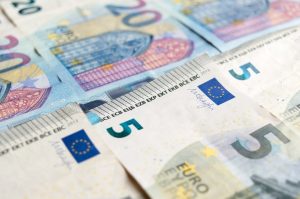Forex trading, also known as foreign exchange trading, is the buying and selling of currencies in the global market. With over $5 trillion traded daily, the forex market is the largest and most liquid financial market in the world. This market is open 24 hours a day, five days a week, and is accessible to individual traders, institutional investors, and corporations.
However, with so many trading options available, it can be overwhelming for a new trader to decide which forex market to enter. In this article, we’ll explore the different forex markets to help you make an informed decision.
The Spot Forex Market
The spot forex market is the most common and widely traded forex market. In this market, currencies are traded at the current price, which is determined by the supply and demand of the market. Spot forex trading allows traders to buy and sell different currencies instantly, without any delay or waiting period.
The spot forex market is ideal for traders who want to trade with a short-term perspective, meaning they want to take advantage of the market’s volatility and make quick trades. This market is also popular among day traders who want to make multiple trades in a day and close all their positions before the market closes.
The Futures Forex Market
The futures forex market is a regulated market where traders can buy and sell currency futures contracts. These contracts are agreements to buy or sell a specific currency at a predetermined price and date in the future. The futures forex market is commonly used by institutional investors and corporations to hedge against currency risk.
Trading currency futures requires a higher initial investment than spot forex trading as futures contracts have a minimum contract size. Futures contracts also have an expiration date, which means traders need to close their positions before the contract expires to avoid delivery of the underlying currency.
The Options Forex Market
The options forex market is another regulated market where traders can buy and sell currency options contracts. Options contracts give traders the right, but not the obligation, to buy or sell a currency at a predetermined price and date in the future.
Options contracts have a premium, which is the cost of buying the option. This premium is paid upfront and can be a significant cost for traders. Options forex trading is ideal for traders who want to limit their risk exposure and have a longer-term perspective on the market.
The Forward Forex Market
The forward forex market is a privately negotiated market where traders can buy and sell currency forward contracts. These contracts are similar to futures contracts, but they are not traded on a regulated exchange. Forward contracts allow traders to lock in a currency price for a future transaction.
The forward forex market is commonly used by corporations to hedge against currency risk for future transactions. This market is less liquid than the spot forex market and requires a higher initial investment.
Conclusion
In conclusion, there are several forex markets available for traders to choose from, each with its own advantages and disadvantages. The spot forex market is the most common and widely traded market, while the futures, options, and forward forex markets are regulated and commonly used by institutional investors and corporations.
When choosing which forex market to enter, traders should consider their trading style, risk tolerance, and investment budget. It’s essential to do your research and choose a market that suits your needs and trading goals.






